We believe the diverse strengths and abilities of our medical staff and our commitment to teamwork are instrumental to the effective treatment of patients with kidney disease. Having spent their careers studying, treating, and understanding the functioning of the kidney, as well as the network of subtle interactions between the kidney and the rest of the body, our physicians are able to precisely assess the evolving condition of the patient.
The diversity of our team enables us to satisfy every aspect of care for our patients. Our team includes eight transplant nephrologists, world-recognized surgeons, a donor nephrologist, transplant nurse coordinators, social workers, a pharmacist, and other medical professionals.
Highlighted below are key members of the team who work closely together on a daily basis to provide specialized care for our patients.

Surgical Director
Stefan G. Tullius, MD, PhD, FACS, is the Chief of the Division of Transplant Surgery, Co-Director of the Schuster Transplant Center, and a Professor of Surgery at Harvard Medical School. He is the Program/Surgical Director of the Kidney/Pancreas Program and Principal Investigator of the Transplant Surgery Research Laboratory.
See Entire Profile See Entire Profile
Medical Director
Anil Chandraker, MD, is the Medical Director of the Kidney/Pancreas Transplant Program, Interim Director of the Transplant Research Center, and an Associate Professor of Medicine at Harvard Medical School. Dr. Chandraker has broad research interest in transplantation, including basic, translational and clinical research.
See Entire Profile See Entire Profile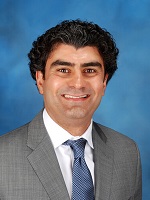
Transplant Nephrologist
Jamil Azzi, MD, is a transplant nephrologist and an Associate Professor of Medicine at Harvard Medical School. Dr. Azzi also is the Program Director of the BWH Transplant Medicine Fellowship Program.
See Entire Profile See Entire Profile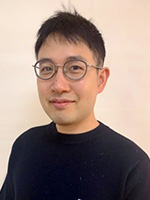
Transplant Nephrologist
John Choi, MD, is a transplant nephrologist and an Instructor in Medicine at Harvard Medical School. Dr. Choi's research focuses on antigen-specific regulatory T cells. The major goal of Dr. Choi's research is to develop novel therapies to minimize the toxicity of the current immunosuppression medications and promote long-term allograft survival.
See Entire Profile See Dr. Choi's Profile
Transplant Surgeon
Sayeed Malek, MD, is the Clinical Director of the Division of Transplant Surgery and an Assistant Professor of Surgery at Harvard Medical School. His clinical specialties are kidney and pancreas transplantation, and his interests include laparoscopic donor nephrectomy, vascular access, and clinical studies on ECD and DCD donors.
See Entire Profile See Entire Profile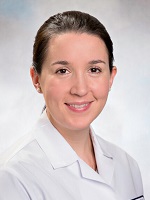
Transplant Nephrologist
Martina McGrath, MD is a transplant nephrologist and an Instructor of Medicine at Harvard Medical School.
See Entire Profile See Entire Profile
Transplant Nephrologist
Edgar Louis Milford, MD, is a transplant nephrologist and an immunogeneticist. Dr. Milford is the Director of the BWH Tissue Typing Laboratory and an Associate Professor of Medicine at Harvard Medical School.
See Entire Profile See Entire Profile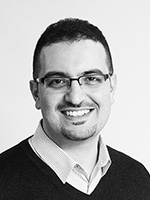
Transplant Nephrologist
Saif A. Muhsin, MBChB, is a transplant nephrologist and an Instructor of Medicine at Harvard Medical School. Dr. Muhsin is also the co-director of the BWH Glomerular Disease Clinic. Dr. Muhsin has research interests that include translational and clinical research in kidney transplantation and glomerular diseases.
See Entire Profile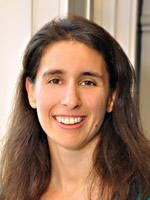
Transplant Nephrologist
Emily Robinson MD is a clinical nephrologist and Instructor in Medicine at Harvard Medical School, as well as the Director of Community Nephrology at BWH. She sees patients with a variety of renal issues. Her clinical interests include chronic kidney disease management and prevention, the transition to end stage renal disease, kidney stone prevention, lupus nephritis, as well as working closely with the renal transplant team to do donor evaluations and to follow patients in the community post-transplant.
See Entire Profile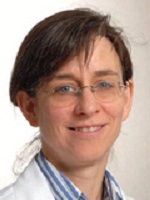
Living Donor Nephrologist
Alice M. Sheridan, MD, is a general nephrologist, an Assistant Professor of Medicine at Harvard Medical School and she is the Assistant Director of the BWH Tissue Typing Laboratory, and a deputy editor of nephrology at UpToDate. Dr. Sheridan serves as our donor nephrologist to evaluate potential living donors.
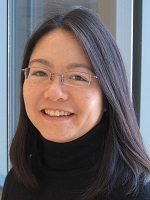
Transplant Nephrologist
Melissa Yeung, MD, is a transplant nephrologist and an Instructor in Medicine at Harvard Medical School and she is the Assistant Director of the BWH Tissue Typing Laboratory. Dr. Yeung's research focuses on identifying novel pathways to prevent rejection after transplantation while lessening the need for lifelong immunosuppression.
See Entire Profile See Entire ProfileBWH medical specialists provide the expertise vital to making transplantation a success. After transplantation and throughout long-term follow-up care, our specialists closely monitor the patient's progress and help determine an individualized medication program. Our specialists will make careful assessments of the body's reaction to the transplant and adjust the anti-rejection medications that truly make the transplant viable.
Steven Gabardi, PharmD, BCPS, FAST, FCCP, is a transplant pharmacist and an Assistant Professor of Medicine at Harvard Medical School. He also is the Director of the Organ Transplant Pharmacology Residency program. Board-certified as a pharmacotherapy specialist, Dr. Gabardi has published in several textbooks and peer-reviewed journals for medicine, surgery, and pharmacy. In his capacity as our medication expert, Dr. Gabardi plays a pivotal role in patient education to prepare you to manage your medications at home and long-term medication management. You can contact Dr. Gabardi at 617-732-7658.
The surgical and medical physicians collaborate with certified physician assistants to develop plans of care when you are in the hospital. PAs are trusted, skilled healthcare professionals dedicated to transforming health through patient-centered, team-based medical practice.
The specialized focus of our BWH surgical and medical staff is supplemented by the comprehensive expertise of our nurse coordinators and social workers.
From the initial screening process to in-hospital preparation and education, and throughout long-term follow-up care, our nurse coordinators and social workers provide treatment, information, and, most importantly, close personal support. At any time, patients and their families can speak with someone who cares and someone who can immediately help, regardless of the issue or problem.
Our nurse coordinators and social worker believe that the deep personal bonds that develop between them and the patient are essential to their work and crucial to the overall success of the transplant program.
Pre-Transplant Nurse Coordinators – Initial screening, education, testing follow-up and support up to transplant (phone: 617-732-6866, option 2)
Post-Transplant Nurse Coordinators – Discharge education, in-clinic and telephone support and education for long-term follow-up care after transplant, including scheduling and results specific to transplant (phone: 617-732-6123, option 3)
Living Donor Nurse Coordinators – Screening, education, support, scheduling, results, and long-term follow-up care for living kidney donors (phone: 617-732-6866, option 3)
Transplant Social Workers – Support recipients and donors throughout the transplant process to help you and your family understand the impact of your transplant, develop strategies to handle problems that arise and help plan financial needs. They can also help you find other support and resources within your community.
Healthy eating habits can make a big difference in your long-term health, both before and after transplant. The dietician is available to advise and create a nutrition plan to help you remain healthy before surgery, recover quickly, and stay healthy after the transplant.
Drastic life changes can occur throughout the transplant process. Professionals are available to work with you through challenging times and help you find other support and resources within your community. Mental health is as important as physical health.
For over a century, a leader in patient care, medical education and research, with expertise in virtually every specialty of medicine and surgery.
About BWH